Genre Philosophy. Page - 1
No registration or authorisation! And it is all for free!

Thus Spoke Zarathustra is a philosophical novel written by Friedrich Nietzsche, first published in 1883. The book is structured in four parts and details the journey of the prophet Zarathustra as he navigates his own spiritual crisis and attempts to bring a new philosophy to humanity. The book covers a range of topics including morality, the concept of the Übermensch, the will to power, and the eternal recurrence of the same. Nietzsche's writing style is highly poetic and philosophical, making
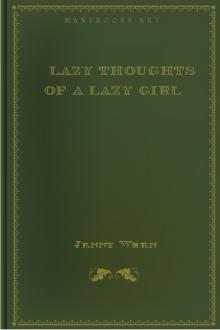
"Lazy Thoughts of a Lazy Girl" by Jenny Wren is a witty and humorous collection of essays and musings on the art of laziness. Through a series of relatable and entertaining anecdotes, Wren explores the joys and pitfalls of a life lived at a leisurely pace, touching on topics such as procrastination, napping, and the art of doing nothing. Her writing is light-hearted and whimsical, but also insightful, encouraging readers to embrace their inner laziness and find beauty in the quiet

to His fallen creatures, than to have revealed a book which would leave them in doubt and uncertainty, to contend with one another, from age to age, respecting the meaning of its contents. That such uncertainty and contention have existed for ages, none will deny. The wise and learned have differed, and do still widely differ, from each other, in the understanding of prophecy. Whence then this difference? Either Revelation itself is deficient, or else the fault is in mankind. But to say
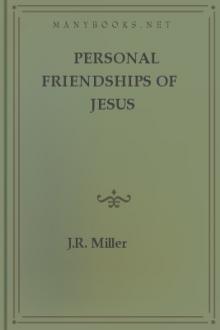
The first friend a child has in this world is its mother. It comes here an utter stranger, knowing no one; but it finds love waiting for it. Instantly the little stranger has a friend, a bosom to nestle in, an arm to encircle it, a hand to minister to its helplessness. Love is born with the child. The mother presses it to her breast, and at once her heart's tendrils twine about it. It is a good while before the child becomes conscious of the wondrous love that is bending over it, yet all the
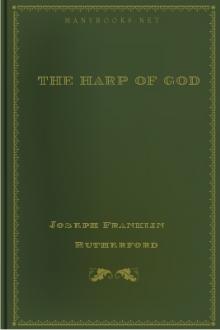
me future there would come into the world a mighty man; that he would be born a Jew (Deuteronomy 18:15), specifying the place where he would be born (Micah 5:2); that he would come to his own people and they would not receive him; that he would be despised and rejected of men, a man of sorrows and acquainted with grief (Isaiah 53:1-3); that he would ride into Jerusalem upon an ass, the foal of a like animal, and offer himself as king to the Jews (Zechariah 9:9); that he would be rejected by the
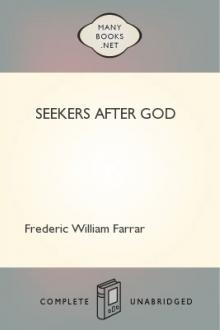
ften fathomed those "abysmal deeps of personality," the recognition of which is a necessary element of marked individual growth.We have, therefore, no materials for forming any vivid picture of Seneca's childhood; but, from what we gather about the circumstances and the character of his family, we should suppose that he was exceptionally fortunate. The Senecas were wealthy; they held a good position in society; they were a family of cultivated taste, of literary pursuits, of high
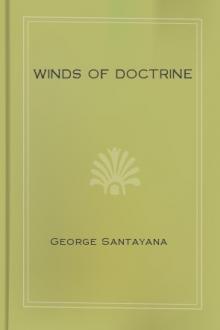
ine arts, however, and in religion and philosophy, we are still in full career towards disintegration. It might have been thought that a germ of rational order would by this time have penetrated into fine art and speculation from the prosperous constructive arts that touch the one, and the prosperous natural and mathematical sciences that touch the other. But as yet there is little sign of it. Since the beginning of the nineteenth century painting and sculpture have passed through several
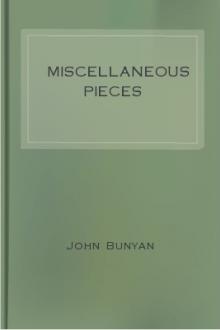
To understand allmysteries, to have all knowledge, to be able to comprehend with allsaints, is a great work; enough to crush the spirit, and to stretch thestrings of the most capacious, widened soul that breatheth on this sideglory, be they notwithstanding exceedingly enlarged by revelation.Paul, when he was caught up to heaven, saw that which was unlawful,because impossible, for man to utter. And saith Christ to thereasoning Pharisee, "If I have told you earthly things, and ye believenot,

nclusions beforehand into the acceptable and the inacceptable, the edifying and the shocking, the noble and the base. Wonder has no longer been the root of philosophy, but sometimes impatience at having been cheated and sometimes fear of being undeceived. The marvel of existence, in which the luminous and the opaque are so romantically mingled, no longer lay like a sea open to intellectual adventure, tempting the mind to conceive some bold and curious system of the universe on the analogy of

t eat Chinese food? They won't be able to go to the country and minister in all the little country churches that are so much in need of help--they can't get Western food there! They had better have stayed at home!After a few years had passed, however, the young man mentioned above did start to do country work, and he did it very acceptably. What is more, he even came to prefer an ordinary country meal of local food to the best Western dishes that his wife could give him at home! Seeing that, I